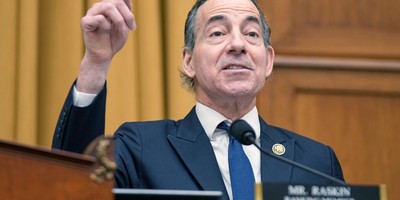LONDON -- We Americans may have declared our independence from Britain in 1776, but there are still similar rhythms in British and American politics. Margaret Thatcher and Ronald Reagan both came to power amid the ruins of the 1970s and restored their nations' economies and spirits in the 1980s. Bill Clinton and Tony Blair both developed "third-way" politics that transformed unelectable left parties into center-left political colossuses in the 1990s.
So it's not unreasonable to look for lessons for America's politicians in the British election last Thursday. As I write, the outcome is unclear. Conservatives just missed getting a majority of seats in the House of Commons but appear headed for a deal with the third-party Liberal Democrats that will install Conservative leader David Cameron in No. 10 Downing Street.

One thing in common between the two countries is the contempt expressed for all politicians, sparked in Britain by parliamentary expense account scandals. "Best of a bad lot" was a phrase I heard on sidewalks and polling stations in Watford, Birmingham and Hammersmith.
Not coincidentally, the results were disappointing for all three major parties, in ways that provide cautionary tales for our Democrats and Republicans.
The biggest loser of course was Prime Minister Gordon Brown and his Labor Party, which has drifted away from Tony Blair's "New Labor" policies and stands for big government in a time of economic distress. Labor won 415 seats in 1997 and is now reduced to 258 (out of 650).
Brown managed to rally his party's ancient base in factory towns and its more recent base among ethnic minorities and immigrants. But the middle-income suburban seats Blair won are almost all gone, and without them the party has no hope of a majority. In southern England and the Midlands, the majority and more prosperous part of the country, Conservatives won 224 parliamentary seats and Labor only 87.
The lesson for American Democrats is obvious. Heavy government spending is not a political winner when the private sector economy is ailing. Britain voted Conservative in the 1930s, even more so than last week, and Americans seem poised to vote Republican in November.
Recommended
The results were also disappointing for the Liberal Democrats. Their leader Nick Clegg gave a shining performance in Britain's first party leaders' debate April 15, and Lib Dems soared in the polls. But they sank when voters learned more about their platform, which included legalizing illegal immigrants and ditching the pound for the euro, and the party ended up winning fewer seats than in 2005.
Lesson: Flashy political newcomers better have some substance.
British Conservatives must also be disappointed that they failed to get a parliamentary majority. David Cameron worked hard to rebrand his party as modern, tolerant and concerned about the environment. But Conservatives failed to make themselves more attractive than Labor or Lib Dems in many targeted upscale seats.
In contrast, they did capture many Labor seats in modest-income areas. And they might have captured more: 3 percent of Britons voted for the UK Independence Party -- votes that if they had gone Conservative would have given the party a solid majority in Parliament.
For American Republicans, there may be a lesson here, that seeking the approval of what David Brooks calls "the educated class" reduces your appeal to what is, in America at least, a larger number of ordinary middle-class people who are worried about government spending and increasingly skeptical of global warming alarmism. These are not people Washington insiders run across very much, but they cast lots of votes.
Another lesson that I draw from reporting and crunching the election returns is that, in a time of disenchantment with politicians, the old political rules may not apply. Britons cast only one vote, for their local member of Parliament, and so have generally voted for the party rather than the person. You usually saw uniform swings in party preference across the nation.
Not so this time. Conservatives lost many target seats they were sure of winning, based on past performance, and won some where they thought they had no chance. MPs with strong constituency ties and records of independence survived in seats where the old rules said they had no chance. Lesson: Just when political insiders think they have things figured out, the voters may have other ideas. You better not take them for granted.

























Join the conversation as a VIP Member